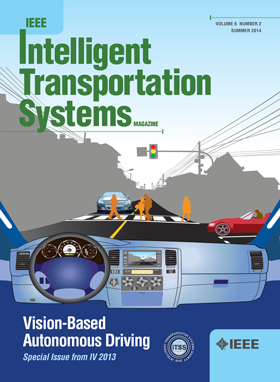Joint Path and Pick-Up Design for Connectivity-Aware UAV-Enabled Multi-Package Delivery
IF 7.9
1区 工程技术
Q1 ENGINEERING, CIVIL
IEEE Transactions on Intelligent Transportation Systems
Pub Date : 2024-10-07
DOI:10.1109/TITS.2024.3467329
引用次数: 0
Abstract
This paper considers an unmanned aerial vehicle (UAV)-enabled multi-package delivery system, where a cargo UAV collects the parcels of ground users, and finally delivers them to the destination. One key aspect of this system is to ensure a stable and reliable connection between the UAV and the base station (BS) throughout the mission for the safety of the UAV flight. To this end, we minimize the communication outage time between the UAV and the BSs while maximizing the value of the packages picked up via optimizing the UAV path and pick-up design. Although the formulated problem is difficult to solve due to its non-convexity, we propose a connectivity-aware delivery (CAD) framework that divides the delivery mission into the path design phase and the pick-up design phase to address this challenging problem. Specifically, in the path design phase, we design the optimal flight path between any two package collection points of the UAV based on deep reinforcement learning to reduce the expected communication outage duration. In the pick-up design phase, we propose a genetic algorithm based pick-up algorithm which decides the selection and order of the packages to be picked by the UAV to maximize the value of the picked-up parcels under the constraints of the UAV’s load and energy. Extensive experiments and comparative studies demonstrate the superior performance of our framework in terms of both the outage rate and total value of the picked packages.为具有连接感知能力的无人机多包装投递设计联合路径和拾取装置
本文研究的是一种由无人飞行器(UAV)支持的多包裹递送系统,在该系统中,货运无人飞行器收集地面用户的包裹,并最终将其递送至目的地。该系统的一个关键方面是确保无人飞行器与基站(BS)在整个任务期间保持稳定可靠的连接,以保证无人飞行器的飞行安全。为此,我们通过优化无人机路径和拾取设计,最大限度地减少无人机与基站之间的通信中断时间,同时最大限度地提高所拾取包裹的价值。虽然由于其非凸性,所提出的问题很难解决,但我们提出了一种连接感知投递(CAD)框架,将投递任务分为路径设计阶段和取件设计阶段,以解决这一具有挑战性的问题。具体来说,在路径设计阶段,我们基于深度强化学习设计无人机任意两个包裹收集点之间的最优飞行路径,以减少预期通信中断时间。在拾取设计阶段,我们提出了一种基于遗传算法的拾取算法,该算法决定无人机拾取包裹的选择和顺序,从而在无人机负载和能量的约束下实现拾取包裹价值的最大化。广泛的实验和比较研究证明了我们的框架在中断率和拾取包裹总价值方面的卓越性能。
本文章由计算机程序翻译,如有差异,请以英文原文为准。
求助全文
约1分钟内获得全文
求助全文
来源期刊

IEEE Transactions on Intelligent Transportation Systems
工程技术-工程:电子与电气
CiteScore
14.80
自引率
12.90%
发文量
1872
审稿时长
7.5 months
期刊介绍:
The theoretical, experimental and operational aspects of electrical and electronics engineering and information technologies as applied to Intelligent Transportation Systems (ITS). Intelligent Transportation Systems are defined as those systems utilizing synergistic technologies and systems engineering concepts to develop and improve transportation systems of all kinds. The scope of this interdisciplinary activity includes the promotion, consolidation and coordination of ITS technical activities among IEEE entities, and providing a focus for cooperative activities, both internally and externally.
 求助内容:
求助内容: 应助结果提醒方式:
应助结果提醒方式:


